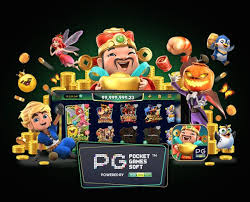Slot Machines: The Evolution, Psychology, and Technology Behind the World’s Most Popular Casino Game
Slot machines—also known as “one-armed bandits”—have come a long พีจีสล็อต since their mechanical beginnings in the late 19th century. Today, slots dominate casino floors and online gambling platforms alike, offering an experience that is as much about entertainment as it is about chance. But behind the spinning reels and flashing lights lies a fascinating blend of engineering, psychology, and innovation. This article takes a unique look at the history, inner workings, and cultural impact of slot machines.
1. The Origins of the Slot Machine
The very first slot machine was invented by Charles Fey in San Francisco around 1895. Called the Liberty Bell, this mechanical device featured three spinning reels and five symbols: horseshoes, diamonds, spades, hearts, and a cracked Liberty Bell. A win was triggered when three Liberty Bells lined up, awarding a modest prize.
- Early Innovations:
Fey’s machine was mechanical and operated with a lever—hence the nickname “one-armed bandit.” It quickly became a sensation in bars and cigar shops across America, paving the way for the first wave of mass-produced slot machines. - Fruit Symbols and Gum Payouts:
In the early 1900s, gambling laws prohibited cash payouts. To get around this, machines used fruit symbols and dispensed gum or candy, which is why we still see cherries, lemons, and BAR symbols today.
2. The Shift to Digital: From Mechanical to Virtual
As technology progressed, so did the design of slot machines. The 1960s saw the birth of electromechanical slots, and by the 1980s, microprocessors revolutionized gameplay.
- Video Slots:
The first video slot appeared in 1976. Instead of physical reels, it used a screen to simulate spinning, opening the door for much more complex game design. Themes, animations, and bonus rounds began to appear, creating a more immersive experience. - Online Slots:
The explosion of the internet in the late 1990s and early 2000s brought slots into the digital age. Online casinos began offering hundreds of slot variations, many with licensed themes from popular movies, TV shows, and video games. - Mobile Slots:
Today, mobile gaming dominates the scene. Players can enjoy slots on their smartphones and tablets with no download required, thanks to browser-based HTML5 games. The convenience has further cemented slots as the top casino game worldwide.
3. How Slot Machines Work: RNGs and Payout Mechanics
Beneath the surface, slots are governed by complex algorithms that ensure fairness and unpredictability.
- Random Number Generators (RNGs):
All modern slots use RNGs to determine the outcome of each spin. These algorithms produce a sequence of numbers at lightning speed, which correspond to symbols on the reels. The moment you hit “spin,” the RNG selects a combination, ensuring complete randomness. - Return to Player (RTP):
RTP is a key metric in slot design. It represents the percentage of all wagered money that a slot machine will pay back to players over time. A game with 96% RTP, for example, will return $96 for every $100 wagered—on average. - Volatility:
Slots can be categorized by volatility (or variance). High-volatility slots offer larger, less frequent payouts, while low-volatility games pay smaller wins more often. This affects a player’s experience and risk level.
4. The Psychology of Slot Machines
Slot machines are engineered to be addictive. Game developers incorporate behavioral psychology to keep players engaged and coming back for more.
- Reinforcement Loops:
Frequent small wins, near-misses, and immersive audio-visual feedback all contribute to a powerful reward loop that keeps players spinning. - Losses Disguised as Wins (LDWs):
This occurs when a player wins fewer credits than they bet—but the machine still celebrates with sounds and visuals, tricking the brain into feeling rewarded. - Gambler’s Fallacy:
Many players fall victim to the belief that a win is “due” after a series of losses. In truth, each spin is independent, but the illusion of patterns can drive compulsive behavior.
5. Themes, Jackpots, and Bonus Rounds
One of the biggest appeals of modern slots is the variety. Today’s games are more than just spinning reels—they’re interactive adventures.
- Themed Slots:
Whether it’s mythology, pop culture, or fantasy, slot themes now rival those of video games. Licensed slots based on movies or TV shows bring familiar stories to the reels, complete with custom animations and soundtracks. - Progressive Jackpots:
These are pooled prize funds that grow every time someone plays a linked game. Mega Moolah and Mega Fortune are examples of progressive slots that have made millionaires overnight. - Bonus Features:
Free spins, pick-me games, expanding wilds, multipliers—these features add strategy and excitement, increasing player engagement and win potential.
6. Regulation and Responsible Gaming
While slots offer entertainment and potential rewards, they can also pose risks for problem gambling. Regulatory bodies exist to ensure fairness, transparency, and player safety.
- Licensing and Audits:
Reputable online casinos are licensed by gaming authorities (like the UK Gambling Commission or Malta Gaming Authority) and audited by third-party firms to ensure fair RNGs and accurate RTPs. - Responsible Gambling Tools:
Many platforms offer self-exclusion, deposit limits, and time reminders to help users stay in control of their gameplay. Educational campaigns also aim to raise awareness about gambling addiction.
7. The Future of Slot Gaming
With rapid advancements in technology, the future of slot gaming looks set to be more immersive and personalized than ever.
- Virtual Reality (VR) Slots:
Developers are experimenting with VR to bring players into fully immersive 3D casino environments where they can walk up to machines and interact in real-time. - Blockchain and NFTs:
Some platforms are integrating blockchain technology to ensure provably fair gaming and enable decentralized jackpots. NFT-based slots could let players own and trade unique in-game assets. - AI-Powered Personalization:
Artificial intelligence could soon tailor slot recommendations and features to individual playing styles, making the experience more dynamic and user-centric.
Conclusion
Slot machines have evolved from simple mechanical devices into sophisticated entertainment systems that blend chance, strategy, and psychology. Their enduring appeal lies not just in the possibility of winning, but in the experience—one that’s carefully crafted through design, technology, and storytelling.
As innovation continues to shape the gambling industry, slot games will undoubtedly remain at the forefront—adapting to new trends, adopting emerging tech, and continuing to captivate millions around the world. Whether you’re spinning for fun or fortune, one thing is clear: the world of slots is far deeper than it seems.


